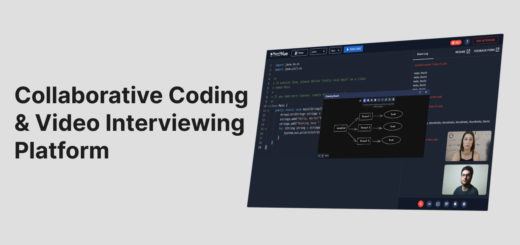Mastering the Art of Effective Technical Interviews: A Comprehensive Guide

Technical interviews are the cornerstone of hiring top-notch talent in today’s competitive landscape. The ability to assess candidates’ technical skills, problem-solving abilities, and cultural fit is crucial for organizations seeking the right individuals to drive success. In this comprehensive blog post, we will delve into the art of conducting effective technical interviews and explore key strategies that can help you make informed hiring decisions.
- Define Clear Objectives
Before diving into the interview process, it’s essential to define clear objectives for the role you’re hiring for. Take the time to identify the technical skills, knowledge areas, and problem-solving abilities required to excel in the position. This clarity will guide your interview structure and ensure you ask the right questions to evaluate candidates accurately. - Plan the Interview Structure
Creating a well-structured interview process is crucial for consistency and fairness. Develop a format that includes a mix of technical questions, coding exercises, problem-solving scenarios, and behavioral inquiries tailored to the specific role. Establishing a standardized process helps you evaluate candidates consistently and compare their performance effectively. - Craft Relevant Technical Questions
Crafting relevant technical questions is a crucial step in assessing candidates’ expertise. Identify the core competencies required for the role and develop a list of questions that cover these areas comprehensively. Consider incorporating both theoretical and practical scenarios to gauge candidates’ understanding and application of key concepts. - Incorporate Coding Exercises and Projects
To assess candidates’ coding skills and problem-solving abilities, consider incorporating coding exercises or small projects. These practical assessments provide a valuable opportunity to evaluate candidates’ ability to write clean and efficient code, handle complex scenarios, and showcase their problem-solving approach. - Create a Supportive Interview Environment
To assess candidates’ coding skills and problem-solving abilities, consider incorporating coding exercises or small projects. These practical assessments provide a valuable opportunity to evaluate candidates’ ability to write clean and efficient code, handle complex scenarios, and showcase their problem-solving approach. - Active Listening and Effective Communication
Active listening and effective communication are key skills for interviewers. Listen attentively to candidates’ responses, ask relevant follow-up questions, and engage in meaningful conversations. Effective communication allows you to understand candidates’ technical knowledge, problem-solving approach, and ability to articulate their ideas clearly. - Assess Problem-Solving Skills
Evaluating candidates’ problem-solving skills is essential in technical interviews. Present them with real-world scenarios or technical challenges, and observe their approach, logical thinking, and ability to break down complex problems into manageable steps. Assessing problem-solving skills helps you identify candidates who can effectively tackle challenges on the job. - Evaluate Cultural Fit and Soft Skills
Technical skills are crucial, but evaluating cultural fit and soft skills is equally important. Assess candidates’ ability to collaborate, communicate, and work in a team environment. Ask behavioral questions that delve into their past experiences, problem-solving approaches, and adaptability to gauge their compatibility with your organization’s culture. - Allow Time for Candidate Questions
Allow candidates to ask questions about the role, company, or team. Their questions provide valuable insights into their enthusiasm, curiosity, and level of interest in the position. Encourage open dialogue and provide comprehensive answers to their queries. - Provide Timely and Constructive Feedback
After the interview, provide candidates with timely and constructive feedback. Offer specific insights into their strengths, areas for improvement, and how well they align with the role’s requirements. Constructive feedback helps candidates understand their performance and enables them to grow, even if they are not selected for the position.
Mastering the art of effective technical interviews is a valuable skill for hiring the right talent. However, conducting interviews can be time-consuming and resource-intensive for organizations. That’s where HireHunch, an Interview as a Service platform, comes in. HireHunch offers a comprehensive solution for conducting interviews, providing expert interviewers, and saving your company’s bandwidth. With features like proctoring and personalized assessments, HireHunch streamlines your interview process, ensuring you make informed hiring decisions efficiently.



